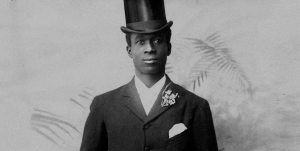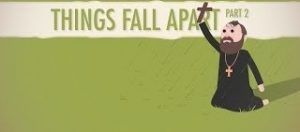Click below, if you prefer listening to the audio
A ripple in history that was so powerful it caused the people of England to listen. A ripple so strong yet it wasn’t included within our school’s curriculum?
I have a theory as to why the government continues to whitewash the curriculum of inspiring stories from people of colour. But more on that later in the post. For now, let’s learn (or recap) about the Bristol Bus Boycott.
The Bristol Omnibus Company was owned by the British Government. This company operated the Bristol bus company and held the power on recruitment. They enforced a colour bar on recruitment, meaning that although they employed Black people to work in the canteens and workshops, they did not allow Black people to be bus operators of any kind.
Although the organisation denied any colour bar, Andrew Hake the curator of the TGWU (Transport and General Workers Union) famously said “The TGWU in the city had said that if one black man steps on the platform as a conductor, every wheel will stop.”
In those days, racists were not afraid to be overtly racist. Nowadays not all racist people are so proud of being so and will do it behind closed doors. Or through the system they work in by enforcing a colour bar, and just not put it on paper.
One of the reasons why the white bus workers agreed with the colour bar on these positions was that the pay was relatively low, and they were able to bump up their wage by working overtime. If the bus company employed more people, then the overtime would go and they would get less money to take home.
One solution could have been to increase the pay for workers. Therefore, the white workers would still receive close to what they would have earned without the overtime.
It is worryingly too easy for a problem to be solved by blaming foreign workers. How many times do we read articles where foreigners are the cause for every problem?
It is also worrying that many people in this country are so ready to take this rhetoric as gospel without reading past the headline.
West Indian Development Council
In 1960, Bristol had around 3,000 West Indian inhabitants who had served in WWII or had recently travelled to the UK. Racism was rife in those days and people of colour were targeted by racist thugs who called themselves Teddy Boys.
Realising that they could not continue individually, a group called the West Indian Association was formed. Through this group, West Indians had a formal collective who could speak on their behalf to the council and local press.
Not happy with the rate of progress of the West Indian Association, four young Black men (Roy Hackett, Owen Henry, Audley Evans, and Prince Brown), formed an action group, later to be called the West Indian Development Council.
This action group was formed to carry the fight to the oppressors. One person who was not on the original list was a man called Paul Stephenson. As he was educated and very articulate, he was chosen to be the group’s spokesperson.
His first action was to gain proof of the colour bar existence in Bristol. He had made some calls and was able to get an interview for a person called Guy Bailey. All the formalities had been made and the date for the interview was confirmed.
Stephenson called ahead to inform the bus company that Bailey was of West Indian heritage.
The bus company cancelled the interview.
Inspired by Rosa Parks, the group decided that a city wide boycott of the buses was how they took action. The boycott was announced in April 1955.
The news of the boycott gained traction. MP Tony Benn supported the movement and reached out to Harold Wilson who spoke out against the colour bar at an anti-aparthied rally in London.
While this was going on, a protest march was organised and protesters marched to the bus station where the local offices of the TGWU was situated.
When asked about the boycott, the general manager of the bus company, Ian Patey stated
The advent of coloured crews would mean a gradual falling off of white staff. It is true that the London Transport employ a large coloured staff. They even have recruiting offices in Jamaica and they subsidise the fares to Britain of their new coloured employees. As a result of this, the amount of white labour dwindles steadily on the London Underground. You won’t get a white man in London to admit it, but which of them will join a service where they may find themselves working under a coloured foreman?
There are too many instances which have happened from the start of time which have led me to believe that history repeats itself. How much of what Ian Patey said still rings true today?
Is this the reason why black people are overlooked for promotions? Is this the reason why companies look to bring in staff as opposed to empowering and training their Black staff for the roles?
Resolution
The resolution finally happened in August, 1963. A meeting was held between all parties involved. The union and the bus company discussed and negotiated for months until Ian Patey announced that there would no longer be a colour bar when recruiting for roles.
This announcement happened on the same day as Martin Luther King made his famous I have a dream speech to the US nation.
That must have been a hard pill for Patey to swallow following his previous comments.
In 2009, Stephenson, Bailey and Hackett were awarded OBEs for their part in the Bristol bus boycott.
Whitewashing of History
This act of rebellion against oppressors happened in 1963. For whatever reason, this is not included within the school’s curriculum which I find quite strange. We were taught about the Suffragette movement, and were given examples of strong people who fought and stood up for their rights.
I imagine that after hearing the length that Ms Davison went to in order to fight for women’s rights, she inspired many women to continue the fight.
I think that the government does not want to promote anarchy, even the good kind. Although they try hard to suppress these moments in time, they are so big that it’s hard to keep them from becoming public news.
However they are successful in their attempts to suppress these stories through time.
The government continues to whitewash history as they want to keep the same groups marginalised and oppressed.
Hearing these stories give the oppressed a sense of pride. It also inspires them, knowing that one of their own is willing to go to drastic measures in their fight for equality.
It has to be said that the flexibility of the curriculum means that schools can choose to teach black history, but this tends to only happen during Black history month. There have been numerous petitions and open letters to make teaching of Black history mandatory.
In June 2020, campaigners collected signatures to send to Gavin Williams, the education secretary to make Black history compulsory in the UK.
Pran Patel, an education consultant who runs a campaign to decolonise the school curriculum, said
Through no fault of their own, our curriculum leaves one group of children feeling inferior and another group with a sense of superiority. Black children don’t see themselves reflected back, and end up feeling they can’t be the person they see in the inspiring story.
The only Black history I remember being taught in school was about Martin Luther King and Malcom X. It was as if there wasn’t any Black British history.
The other references to Black people in lessons was about slavery and in English when we read Of Mice and Men.
I’ll always remember boys in my school laughing at the fact the Black man in that story was referred to as the Stable Buck and proceeded to shout Oh Stable Buck in the corridors after lessons.
Although it wasn’t directed at me, of course I took offence and was upset.
There are many resources and organisations available who want to assist in getting the right messages and history taught in our curriculum as all history needs to be told. Not just the ones where the white man is the victor.
What are your thoughts? Get at me in the comments. Stay Adept 🙂
#BristolBusBoycott #MartinLutherKing #BritishHistory #BlackHistory #OfMiceandMen #BlackHistoryMonth #BlackHistory365 #Protest #BlackExcellence #Fightforyourright #2020BHM





[…] This happened on the 28th August 1963, which was the same date as the UK’s Bristol Bus Boycott. […]